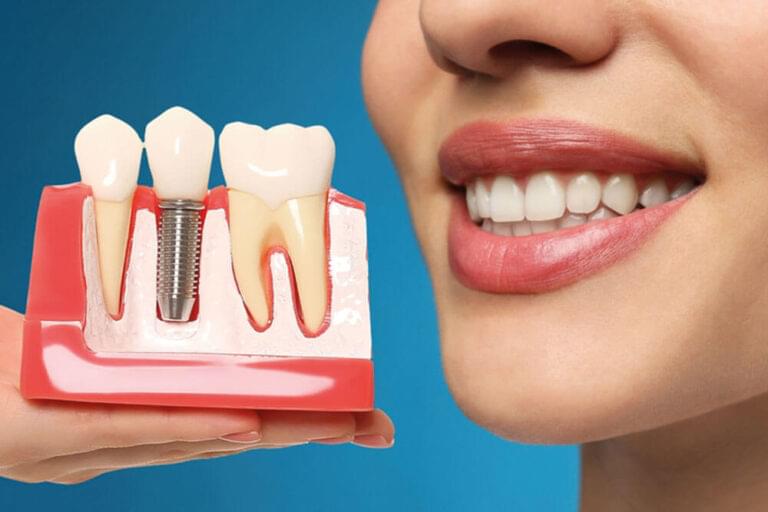

Tooth decay is a common but serious dental issue that, if ignored, can lead to severe consequences. While it may start as a minor cavity, leaving decay untreated can impact not just your oral health but your overall well-being. Understanding what happens if tooth decay is left untreated can help you make informed decisions about your dental care, ensuring your smile remains healthy and vibrant.
Tooth decay begins when plaque—a sticky film of bacteria—builds up on the teeth and produces acids that erode the enamel. In the initial stages, you may not feel any pain, which is why regular dental check-ups are crucial. Early detection allows for minimally invasive interventions, preventing the progression of decay. However, as decay progresses, symptoms such as sensitivity, discoloration, and minor discomfort may start to appear. These are warning signs your teeth are sending, and ignoring them can lead to more significant problems down the line. It’s easy to dismiss a little sensitivity, but this is often the first indicator of a problem.
If left unchecked, tooth decay can move beyond the enamel and affect deeper layers of the tooth, leading to more severe complications. This progression is what truly underlines the importance of addressing dental issues early.
To better understand the increasing severity, consider these specific developments:
A small cavity might seem harmless at first, but over time, the decay spreads. The hole in the tooth deepens, allowing bacteria to reach the inner layers, including the dentin and pulp. This can lead to significant pain and the need for more complex treatments such as root canals or even extractions. The damage is cumulative, and the longer you wait, the more extensive—and expensive—the solutions become.
As decay erodes enamel, the protective barrier against hot, cold, and sugary foods weakens. This leads to increased tooth sensitivity, making everyday activities like drinking coffee or eating ice cream uncomfortable. This sensitivity isn’t just a minor annoyance; it’s a sign that the tooth’s structure is compromised and vulnerable.
One of the most serious outcomes of untreated tooth decay is an infection. When bacteria reach the pulp of the tooth, it can cause an abscess—a painful, pus-filled swelling. This condition requires immediate medical attention as the infection can spread to the jaw, face, and even the bloodstream, leading to serious health risks. Understanding what happens if tooth decay is left untreated means recognizing the potential for systemic, life-threatening infections.
Ignoring what happens if tooth decay is left untreated doesn’t just affect your teeth; it can also have a broader impact on your health. The mouth is a gateway to the body, and oral health is intrinsically linked to overall wellness.
Gum Disease
Advanced tooth decay can contribute to gum disease, a condition that causes inflammation, bleeding, and potential tooth loss. Gum disease has also been linked to systemic health conditions, including heart disease and diabetes. The bacteria from untreated tooth decay can enter the bloodstream, triggering inflammatory responses throughout the body.
Bone Loss in the Jaw
When a tooth is severely decayed and left untreated, it may need to be extracted. Missing teeth lead to jawbone deterioration over time, which can affect facial structure and make future dental restorations more challenging. This bone loss not only changes your appearance but also weakens the foundation for any future dental work, including implants.
Chronic Pain and Discomfort
Persistent pain from untreated decay can interfere with daily life, making eating, speaking, and even sleeping difficult. This can lead to a decreased quality of life and increased stress. Chronic pain can also lead to other health issues, such as headaches, TMJ disorders, and even mental health struggles.
The best way to avoid the complications of tooth decay is through early intervention and preventive care. This proactive approach saves you from the pain and expense of more complex treatments later.
Fortunately, modern dentistry offers a range of effective solutions to address decay at any stage, alongside crucial preventive measures to maintain long-term oral health:
Fillings and Crowns
For early-stage cavities, a simple dental filling can restore the tooth’s structure. If decay has progressed, a crown may be necessary to protect and strengthen the remaining tooth. These treatments are designed to halt the progression of decay and restore the tooth to its functional state.
Root Canals
When decay reaches the tooth’s pulp, a root canal may be needed to remove the infection and save the tooth. This procedure prevents the need for extraction and further complications, preserving your natural tooth structure.
Tooth Replacement Options
In cases where decay has led to tooth loss, options like bridges, dentures, or dental implants can restore function and appearance. While dentures and bridges offer temporary solutions, dental implants provide a more permanent and natural-looking replacement. For those who have experienced severe consequences of what happens if tooth decay is left untreated, dental implants can restore both function and confidence.
Taking proactive steps can help you avoid what happens if tooth decay is left untreated in the first place. These steps are simple but essential for maintaining oral health.
One of the often-overlooked consequences of the question, ‘What happens if tooth decay is left untreated?’ is the financial burden it can impose. As decay progresses from a small cavity to a severe infection, the cost of treatment increases significantly. For instance, a simple filling for a minor cavity is much more affordable than a root canal, which can range from hundreds to thousands of dollars depending on the complexity. If the decay leads to tooth loss and requires restorative procedures such as bridges, dentures, or dental implants, the costs can skyrocket. Not only do these treatments often require multiple visits, but they also involve additional expenses for follow-up care and maintenance. Seeking early treatment can help prevent this financial strain, emphasizing why it’s crucial to address what happens if tooth decay is left untreated before it worsens. Regular dental check-ups and catching issues early can save you significant amounts of money in the long run, making it an investment in both your health and finances.
The impact of what happens if tooth decay is left untreated extends beyond physical health and finances—untreated decay can affect your self-esteem and social interactions. When a tooth becomes severely decayed or falls out due to untreated decay, it can alter your appearance, leading to self-consciousness and embarrassment. Missing or damaged teeth often prevent individuals from smiling or speaking confidently, which can hinder personal and professional interactions. The longer the decay is ignored, the more noticeable the damage becomes, potentially leading to avoidance of social situations or difficulty engaging in conversations. In fact, severe dental issues can even lead to isolation as individuals begin to shy away from public settings due to feelings of insecurity. Therefore, addressing tooth decay early can help preserve both your oral health and confidence, preventing the long-term social and psychological effects of neglecting what happens if tooth decay is left untreated.
Tooth decay is not something to ignore. The longer it goes untreated, the greater the risk of severe pain, infections, and even tooth loss. Understanding what happens if tooth decay is left untreated is crucial for making informed decisions about your oral health. While there are treatment options available, prevention is always the best approach. If you’re experiencing signs of tooth decay, don’t wait—schedule a consultation with your dentist today to protect your smile and overall health. Taking control of your dental health today can prevent severe problems in the future.
Total Freedom is a custom solution and one of the most well recognized dental implants providers in Scottsdale and Phoenix.
We’re about providing the treatment that best fits you. That could mean a full set of new teeth. It could mean fewer implants than you anticipated. It could mean you don’t require any implants at all. When we can save the teeth you have, that’s what we recommend.
People travel from all over the country to Arizona for consultations and treatment with Dr. Kaiser. It’s unquestionably worth the trip.
Whether you’re seeking a first or second opinion, or even if you decide to choose another dental provider, a consultation with Dr. Kaiser will provide you with invaluable insights into your unique dental situation and the available options. You won’t be disappointed.
info@totalfreedomdental.com
Both dental implants and dentures have their pros and cons. And both dentures and dental implants have come a long way in the past 10
What Dental Implants Look Like: A Complete Guide to Natural Smiles Have you ever asked yourself, what do dental implants look like once treatment ends?
How Much Do Dental Implants Cost? Worrying about price is normal. It’s like standing in an auto repair shop after hearing a strange engine noise:


